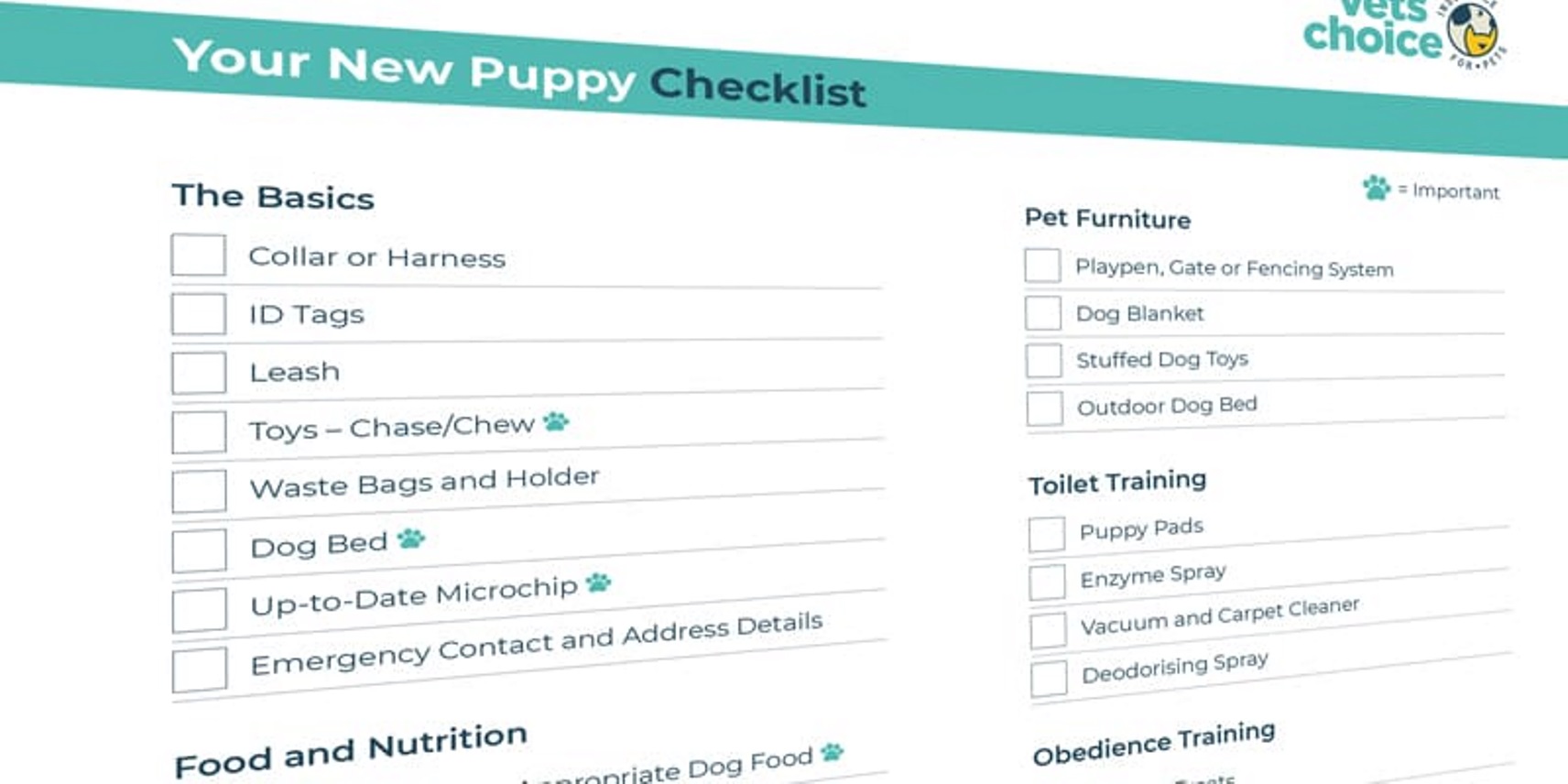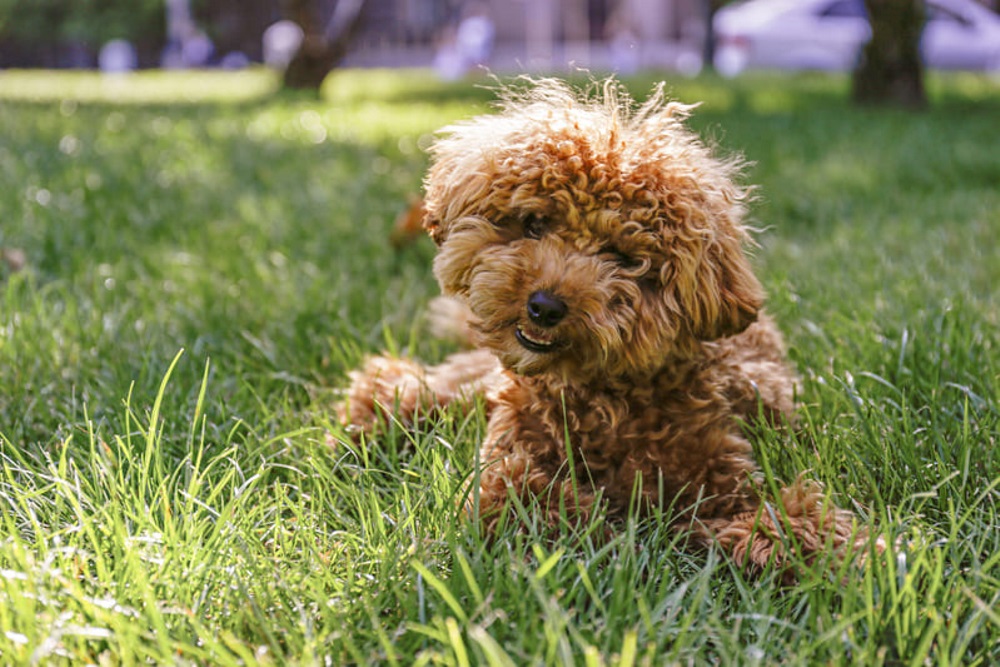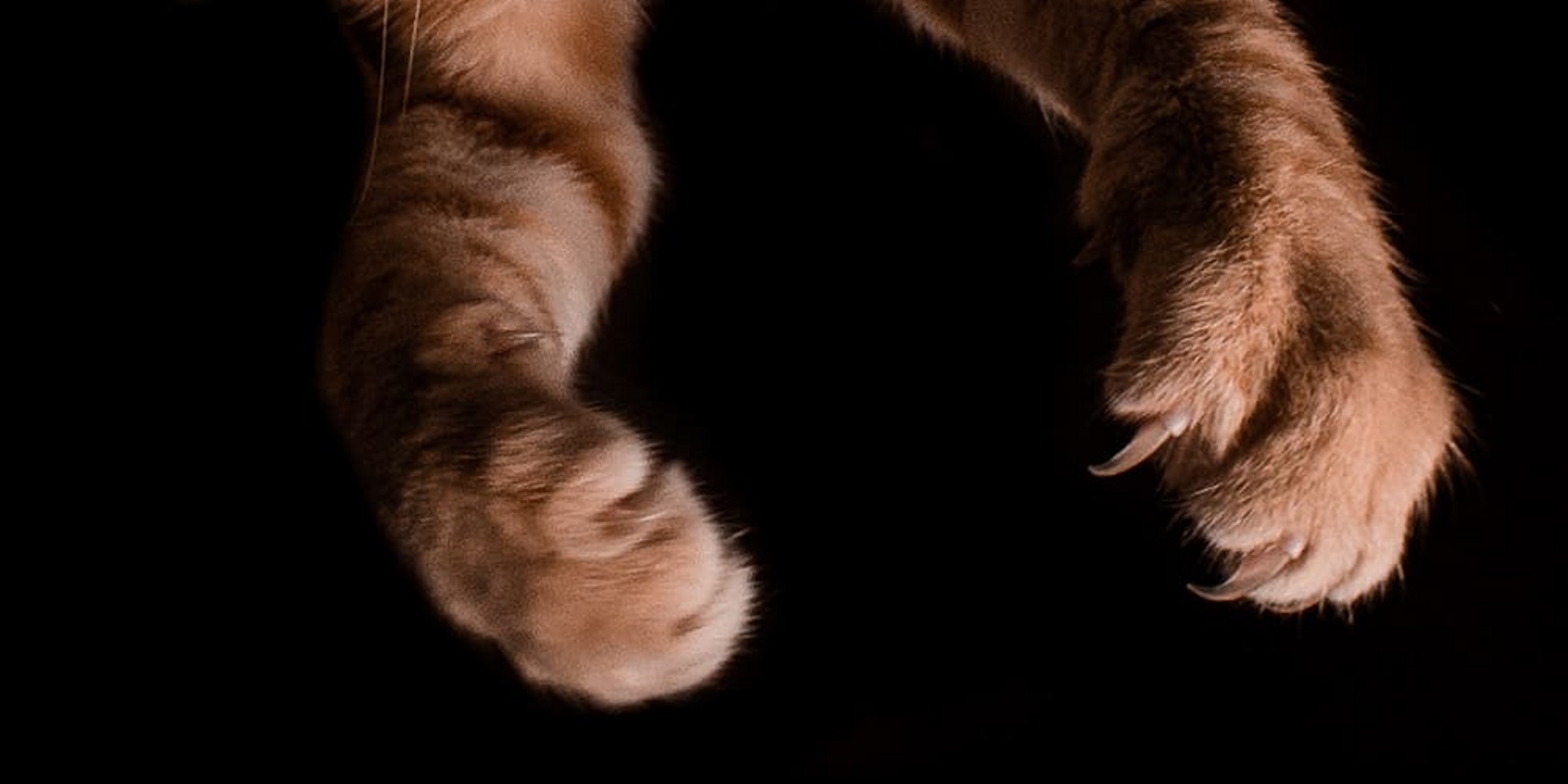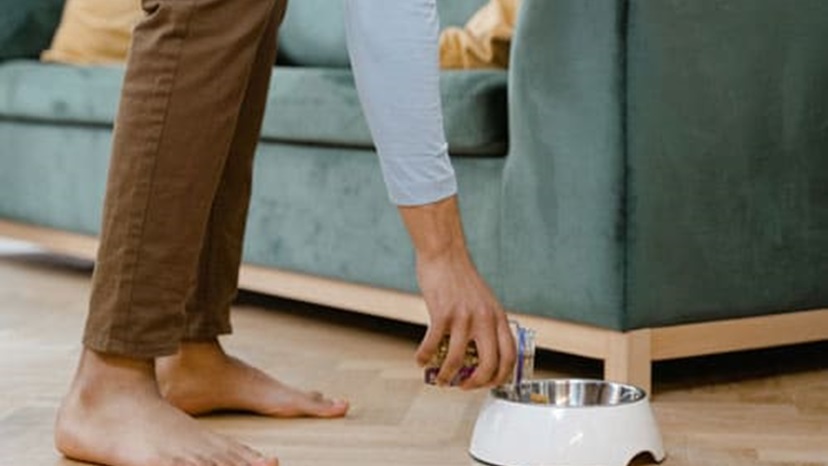New Puppy Checklist

Whether you’re a first-time pet owner or a seasoned puppy parent, it’s important to be ready for your new dog. While exciting, the process can be overwhelming – with so many boxes to tick, it’s hard to know if you’re fully prepared! Luckily, we’ve curated an easily followed checklist that covers the essentials that your new pup will need.
Download our checklist for new puppies here!
Keeping them safe
One of the first things you need to do for your puppy is organise their identification. In case they get lost, a dog with an up-to-date microchip and a collar with the proper ID will be the greatest factor in being able to bring them home. Once the adoption date is set, you should call your local vet to book both their vaccinations and their microchips as close as possible – it’s best to be prepared! Make sure to also avoid parasites by securing heartworm, tick and flea prevention on the advice of your vet.
Once your puppy’s ID and vaccinations are arranged, you might want to think about your pup’s future. Prone to accidents and mischief, you’ll want to ensure that the safety of your pet is secured, which is why it’s important to set up puppy insurance. Luckily, Vets Choice Pet Insurance will take the stress out of financial woes caused by your furry family member, and make sure that the best choices are available to you should the worst occur.
Dinner time
Younger puppies shouldn’t be eating adult dog food straight away. That’s why it’s important to discuss feeding options with your vet and source a veterinarian approved, age-appropriate food to support your pup’s growth. The food and water bowl should be placed in a clean, dry spot, and the water should be refreshed every day.
Looking good
Varied with every breed, you also need to prepare for your puppy’s grooming. Before you choose what kind of dog you’re adopting, you should decide what level of upkeep is maintainable for you and your family. A short-haired dog like a chihuahua won’t need much fur maintenance, but will still require a steady routine of baths, teeth cleaning, and nail clipping to be healthy and happy. Long-haired dogs on the other hand will need to be regularly brushed to keep potentially painful mats out of their fur.
Finally home
Every puppy needs training. With so many avenues to follow, it’s important that you also research training methods to find what best works for you. You may want to invest in a playpen or gate system to keep your pup safely inside a certain area of your house, and you’ll want to have plenty of toys at the ready so that their energy can be used with minimal destruction. Treats work well for food-orientated dogs, and essential socialisation can be found through puppy training schools.
While it can be stressful, introducing a dog into your family can be the most rewarding addition. With these essentials, you and your pup will get off to the very best start like you both deserve, and will continue to thrive for many years to come.


